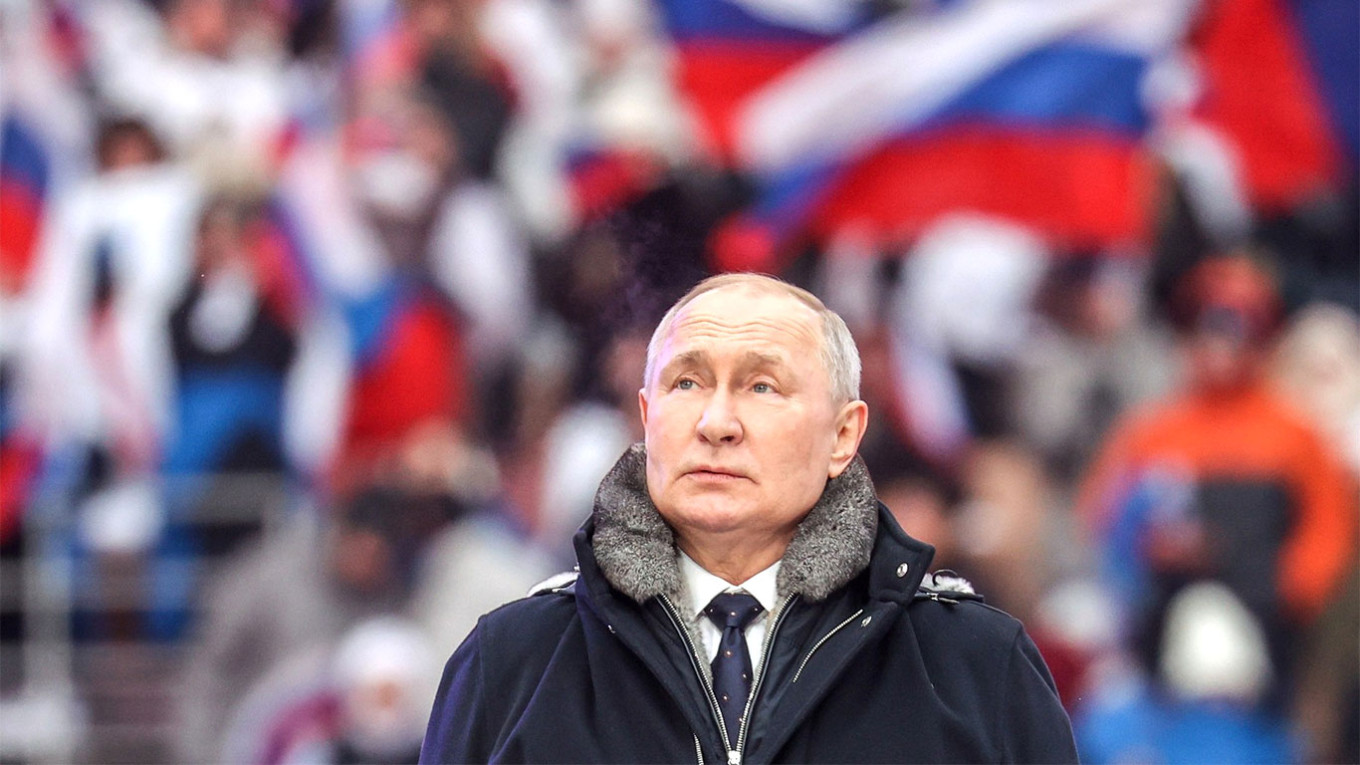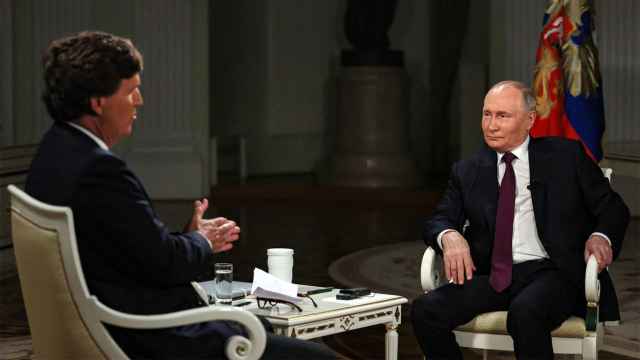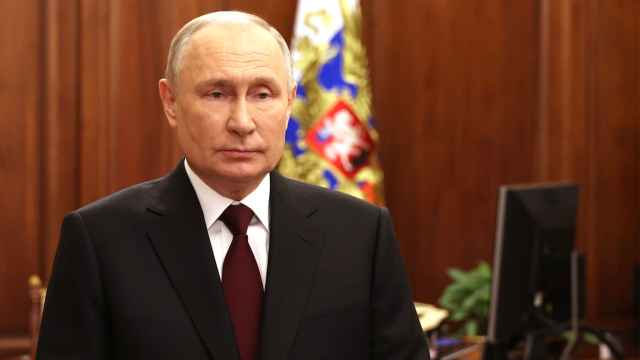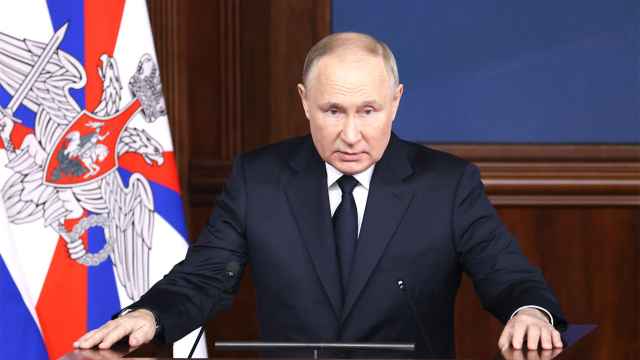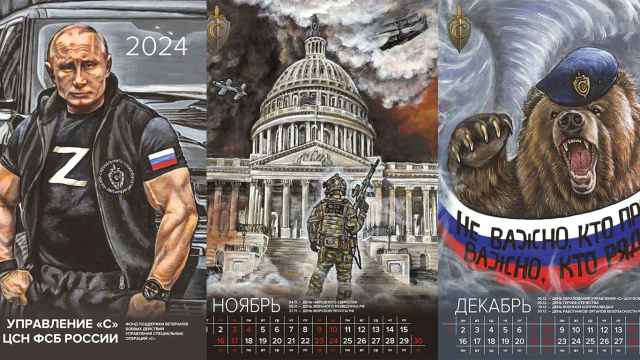Recast and updated with reaction and analysis.
President Vladimir Putin said Russia is fighting for its “historical lands” on Wednesday as the country approaches the one year anniversary of its bloody invasion of Ukraine.
Speaking at a state-organized concert the day before Defender of the Fatherland Day, which is a national holiday, Putin delivered a notably short address to a crowd of tens of thousands.
“I've just been hearing from the highest military command that at this very moment there is an ongoing fight on our historical lands, for our people. It is led by similarly brave fighters to the ones standing beside us here right now,” he said, flanked by Russian soldiers.
The president’s speech — which lasted less than five minutes — was preceded by performances from pro-war artists, Russian military veterans and a group of Ukrainian children apparently from the city of Mariupol, which was devastated in the early months of the invasion.
"Today, defending our interests, our people, our culture, language and territory, our entire nation is the defender of our Fatherland,” Putin said. “I bow to all of you.”
Much of what Putin said echoed his words from his state-of-the-nation address on Tuesday, as well as previous speeches he has given since the start of the war.
Following a performance of the national anthem, Putin went on to give handshakes to military personnel on the stage, while the stadium chanted “Russia!”
“When we are together, no one can be our equal. For the unity of the Russian nation!” Putin said, before calling on the crowd to chant “Russia!” again.
Tens of thousands of people braved subzero temperatures to attend the event — two days before the one year anniversary of the invasion of Ukraine — at Moscow’s Luzhniki Stadium, which hosted the football World Cup final in 2018.
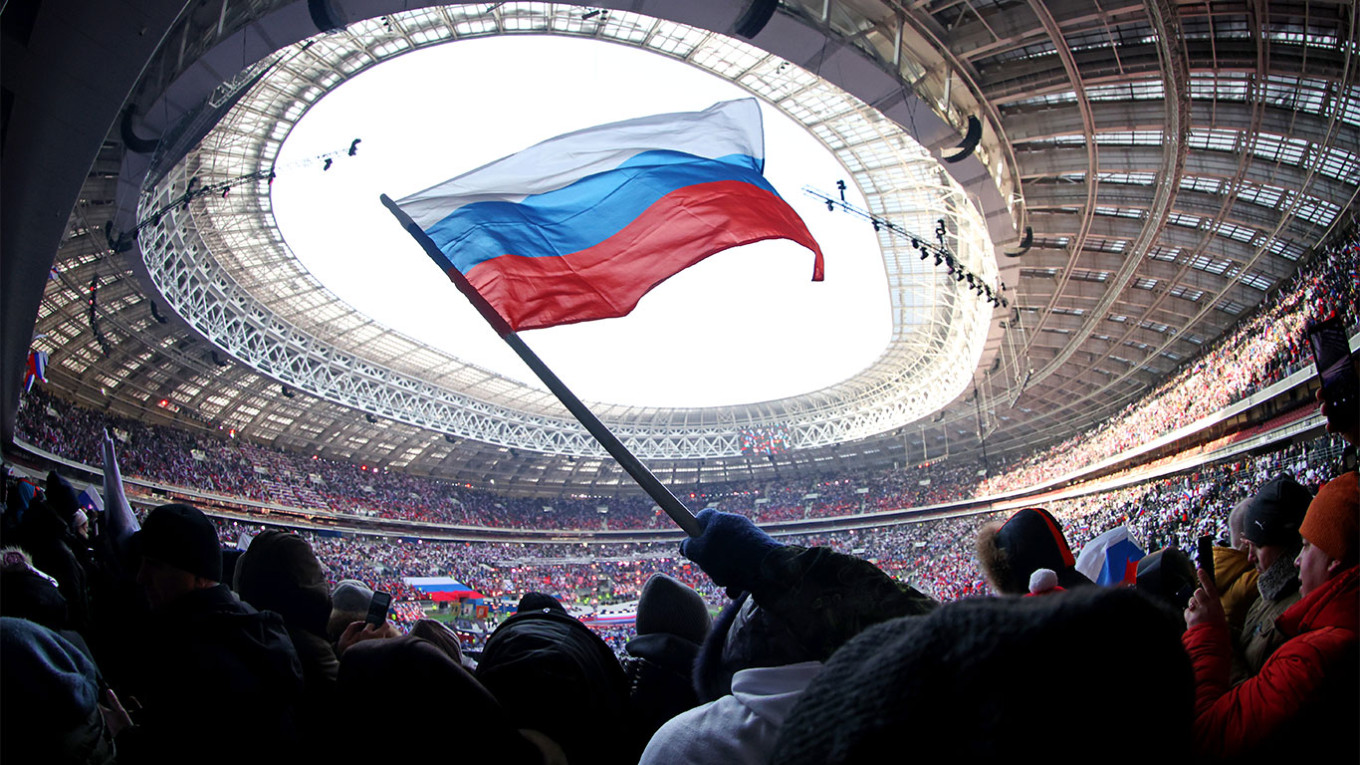
Over 200,000 people took part in the event, news agency Interfax reported citing a Russian police statement.
Many waved Russian tricolor flags and gave muted applause between performances and speeches.
Like previous such official rallies, the majority of the crowd appeared to be made up of employees of state-run companies, or government agencies, who had been told by their bosses to show up.
“I didn’t really want to go to the concert, but at least I’ll visit the stadium — I’ve never been,” a man in his 50s making his way toward Luzhniki earlier in the day told The Moscow Times.
“We have to go and there’s nothing we can do about it. The authorities are using it as a propaganda tool,” said another state employee, who was attending the concert and requested anonymity. “I wouldn’t go to the event voluntarily.”
Organizers apparently promised to distribute hot meals and Russian flags to attendees.
A Moscow City Hall employee who spoke on condition of anonymity told The Moscow Times that city employees were sent to Luzhniki stadium in order to ensure a large crowd.
All concert attendees were subject to stringent security checks upon arrival at the stadium and independent media reported that a Pantsir air defense system was deployed nearby.
Putin’s speech did not seem to inspire much enthusiasm among commentators, even strong supporters of the war — and state-run TV broadcasts of the event did not show any high-ranking officials or other members of the Russian elite in the audience.
The address was more like "a speech by a rational head of state, not a leader of the crowd,” pro-Kremlin pundit Sergei Markov wrote on Telegram.
"He was presenting arguments, not setting things on fire or inspiring."
The rally itself included several other speeches from participants of the “special military operation,” the Kremlin's term for the war in Ukraine.
“Ukraine wanted to destroy us and we were forced to take up the weapons to protect our families, children and women,” said Sergei Lomov, a soldier who appeared on crutches, wearing camouflage attire adorned with a Russian flag.
The event featured performances by various pro-war singers, including pro-Kremlin crooner Oleg Gazmanov, some of which were interrupted by technical difficulties.
At one point, a group of children — introduced by the concert hosts as “children saved from Mariupol” — was brought on stage.
“Thank you uncle Yura for saving me, my sister and hundreds of thousands of children from Mariupol,” said a visibly nervous girl before bursting into tears.
Russia has been accused of forcibly deporting thousands of Ukrainian children to Russian territory and putting them up for adoption, something that would constitute a war crime if proven to be true.
The lack of new ideas in Putin's speech indicates that there will be no let-up in Russia's attempt to seize more territory in Ukraine, according to Oleg Ignatov, a senior analyst at the International Crisis Group.
“The idea of yesterday’s state-of-the-nation address and today’s rally-concert is the same: don't move, sit tight, we're not going to change anything, there's no turning back, we have to survive,” he told The Moscow Times.
After the end of the event, the crowd quickly dispersed, with many heading for the dozens of buses parked near the stadium. Despite alcohol being banned, a Moscow Times reporter saw several heavily drunk men.
“It was a good concert,” said a woman, who declined to give her name but was draped in a large Russian flag.
A Message from The Moscow Times:
Dear readers,
We are facing unprecedented challenges. Russia's Prosecutor General's Office has designated The Moscow Times as an "undesirable" organization, criminalizing our work and putting our staff at risk of prosecution. This follows our earlier unjust labeling as a "foreign agent."
These actions are direct attempts to silence independent journalism in Russia. The authorities claim our work "discredits the decisions of the Russian leadership." We see things differently: we strive to provide accurate, unbiased reporting on Russia.
We, the journalists of The Moscow Times, refuse to be silenced. But to continue our work, we need your help.
Your support, no matter how small, makes a world of difference. If you can, please support us monthly starting from just $2. It's quick to set up, and every contribution makes a significant impact.
By supporting The Moscow Times, you're defending open, independent journalism in the face of repression. Thank you for standing with us.
Remind me later.


